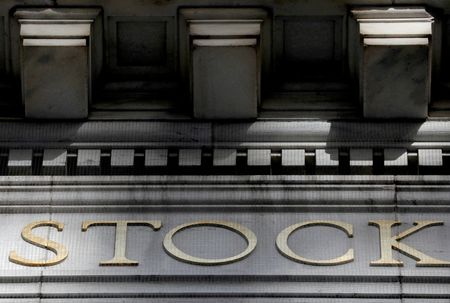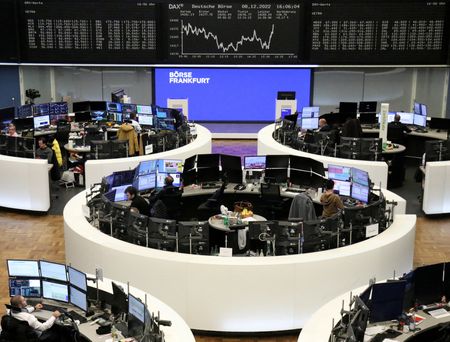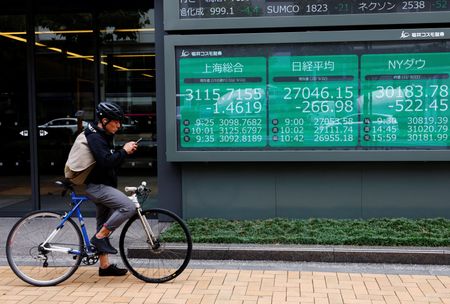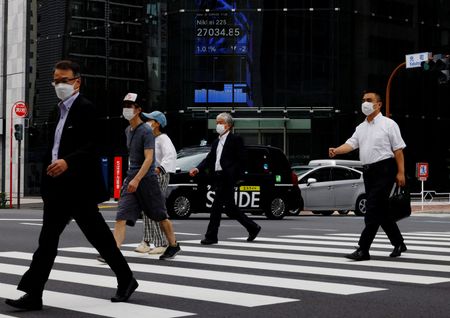



By Chris Prentice, Dhara Ranasinghe and Naomi Rovnick
NEW YORK/LONDON (Reuters) – World stocks were stuck near one-month lows and government bond markets came under fresh selling pressure on Friday, a day after a slew of central banks jacked up interest rates and signalled that the fight to tame inflation was not over yet.
Euro zone bond yields jumped after the European Central Bank pledged further monetary tightening to fight inflation. The U.S. Federal Reserve hiked rates on Wednesday.
The dollar index edged up 0.077%, with the euro down 0.09%.
Wall Street was lower after data showed U.S. business activity contracted further in December, but softening demand helped to significantly cool inflation.
The Dow Jones Industrial Average fell 1.08%, the S&P 500 lost 1.15% and the Nasdaq Composite was down 0.83% by 10:24 a.m. EST (1524 GMT).
Major U.S. indices on Thursday suffered their biggest daily percentage drop in weeks. [.N]
European stocks were poised for a weekly loss, as recession concerns mounted. The region’s Stoxx 600 share index fell 1.33%. [.EU]
World stocks were also under pressure after S&P Global’s flash purchasing managers index showed eurozone economic activity contracted for the sixth consecutive month in December, although the deceleration also eased to its slowest pace in four months.
In Asia, Japan’s Nikkei index closed at its lowest in more than a month and MSCI’s broadest index of Asia-Pacific shares outside Japan was set for its worst week in two months.
All this left MSCI’s world stock index down 1% on Friday, and languishing near at its lowest in over a month.
This week’s hawkish message from central bankers brought an abrupt end to optimism that peak interest rates are on the horizon.
“Central banks delivered a blow to markets that were rebounding in anticipation of policymakers turning dovish on inflation and interest rates,” said Sunil Krishnan, head of multi-asset at Aviva Investors.
The ECB delivered a 50-bps hike like the Fed. Both opted for a smaller increase this time, but flagged there were more increases to come.
Its hawkish message prompted a second day of heavy selling across European bond markets where yields on benchmark German 10-year bonds jumped.
The yield on Germany’s rate-sensitive two-year bond rose as high as 2.503% on Friday,, its highest since 2008.
“We now expect the ECB to go to 3.25% (including 50 bps in March) and the Fed to 5.25% which argues for persistent pressure on yields and spreads,” said Christoph Rieger, head of rates and credit research at Commerzbank.
GROWTH WORRIES
In China, where markets are churning around an uncertain reopening, relief at the apparent resolution of a long-running accounting access dispute with the United States was not enough to bolster sentiment.
Meanwhile, Japan’s manufacturing activity shrank at the fastest pace in more than two years in December, while U.S. retail sales fell more than expected in November.
The prospect of further monetary tightening globally kept investors nervous about longer-run growth.
In commodities, the spot gold price rose 0.77%, but was still on course for its biggest weekly decline since mid-November. Oil gave up recent gains with Brent crude futures dropping 2.83%.
(Additional reporting by Naomi Rovnick in London and Tom Westbrook in Singapore; Editing by Raissa Kasolowsky and Emelia Sithole-Matarise)

